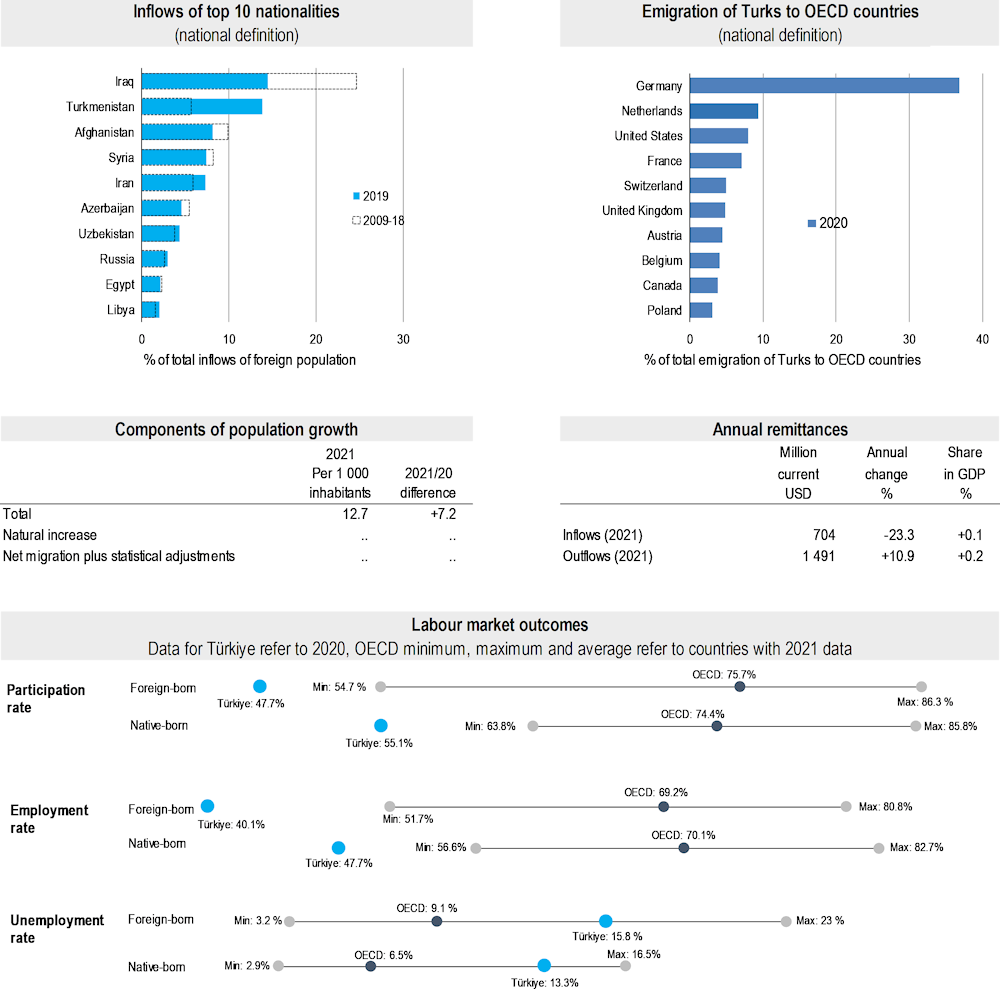In 2021, the number of first asylum applicants decreased by ‑6.6% to reach around 29 000. The majority of applicants came from Afghanistan (22 000), Iraq (4 000) and Iran (1 000). The largest decrease concerned nationals of Iraq (‑900). Of the 46 000 decisions taken in 2021, 28% were positive.
The years 2020‑21 were characterised by major developments in migration policy as a result of the COVID‑19 pandemic and issues concerning Syrians under temporary protection, asylum, irregular migration and return.
In February 2020, Türkiye declared that it could no longer deal with the number of people fleeing Syria’s civil war and would open its borders to facilitate the refugees who wished to leave the country for Europe. The 2016 “EU-Türkiye Statement” or “EU-Türkiye Deal” was suspended allowing irregular migrants to exit Türkiye with the aim of crossing to Greece and Bulgaria. In response, Greece and Bulgaria closed their borders resulting in many migrants staying in limbo at the border.
Additionally, the debate about voluntary return intensified in 2021 with safe zone discussions. A protocol was signed in September 2020 by the Directorate General for Migration Management, the Turkish Co‑operation and Co‑ordination Agency, the Ministry of Foreign Affairs and the Turkish Red Crescent for operational co‑operation in the conduct of a National Assisted Voluntary Return (NAVR) mechanism.
Since 2019, the government of Türkiye has been implementing a policy to relocate Syrian refugees based on their province of initial registration. In January 2021, the Istanbul Directorate General for Migration Management announced that no new residence applications could be made in districts hosting the highest number of registered Syrian and non-Syrian residents in Istanbul and Ankara. In February 2022, the Minister of Interior extended the policy to reduce the number of Syrian refugees and other foreigners in districts where Syrian refugees represent 25% of the population. Relocation policies will be implemented alongside policies halting new registrations or residence applications for Syrians and non-Syrian residents.
Turkish authorities decided not to pursue overstay penalties against foreign nationals who were unable to depart due to COVID‑19 measures, if they departed Türkiye within one month of the international border opening date. Migrants whose residential status expired during the pandemic and official closure of the borders were allowed to prolong their stay.
For further information: www.goc.gov.tr | www.iskur.gov.tr | www.nvi.gov.tr | www.mfa.gov.tr | www.tuik.gov.tr | www.yok.gov.tr | www.denklik.yok.gov.tr

